


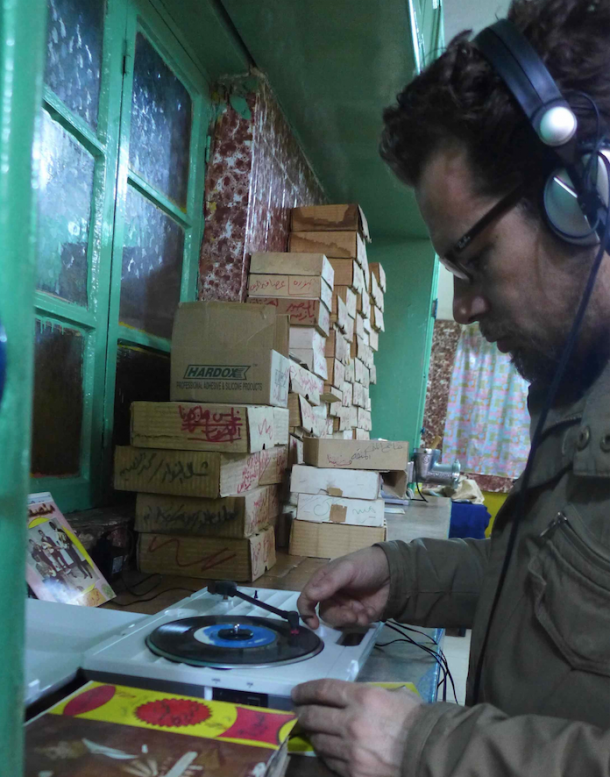
Samy Redjeb in Khartoum by Souheil Ben Redjeb
Ten years after its launch, the Frankfurt-based record label is one of the top references for vinyl miners and african music lovers : well-selected compilations and extended liner notes are two of its trademarks. It is now time to go through the complete story with Samy Ben Redjeb, the mind behind Analog Africa… Have a good musical trip.
When did you start digging records?
Around 1995.
What Lps did you buy at first? Do you still listen to them?
Mainly Zimbabwean and South African records, some I still listen to today.
Do you have a particular style or favorite period and why?
I believe there is good music in every genre. There are phases in which I have to concentrate on a particular country and I listen to all the styles from that place hoping to find the “special tracks” without having to stick to a genre or another. Music I disliked a few years ago I tend to like now, the ear, like the rest of the body, grows and matures, and taste changes with time also. Each person have their own signature when it comes to selecting music and that’s what makes the difference between record labels.
For me personally in sub sahara african, the best period starts after the independence in the mid-60s and last until circa 1982. With independence comes self-confidence, pride, a special energy and that’s something one can clearly feel in the music that was recorded during those years. Relatively good structures where also still in place and generally the governments that had come to power at the time were people that had fought for independence. It seems, although I might have a romantic view about that period, that these people had a real interest in preserving and promoting their cultural heritage and I am thinking of Leopold Sedar Senghor in Senegal, Sekou Toure in Guinea, Kwame Nkrumah in Ghana, Jomo Kenyatta in Tanzania. Tunisia my country of birth, is another example.
In many West African countries, orchestras would be employed by the state, musicians would obtain a civil servant status with a monthly wage, proper musical equipment at disposal, good rehearsal facilities – in other words respect and dignity. That period would see the birth of phenomenal orchestras such as Bembeya Jazz of Conakry, Rail band and Les Ambassadeurs from Bamako, Orchestre Poly-Rythmo from Cotonou in Benin. Most African countries had such bands called « Orchestre National », which says it all. In Ethiopia, musical directors of Armenian origins were sent from Turkey to teach musicians who would later be employed by the army and the police forces. Recordings done by these guys are having tremendous impact 40 years later. the northern hemisphere has bumped into that stuff and it felt like music from out of space. At least that how it sounded to me. Such an incredibly hypnotic music. Sun Ra would have moved to Addis Ababa had he known.
During the 60s and 70s many things were favorable for developing skills and talents that just needed a little push to flourish. Is there anything that equals what had been created in Africa during the 70s in terms of originality and diversity of sound? I very much doubt it.
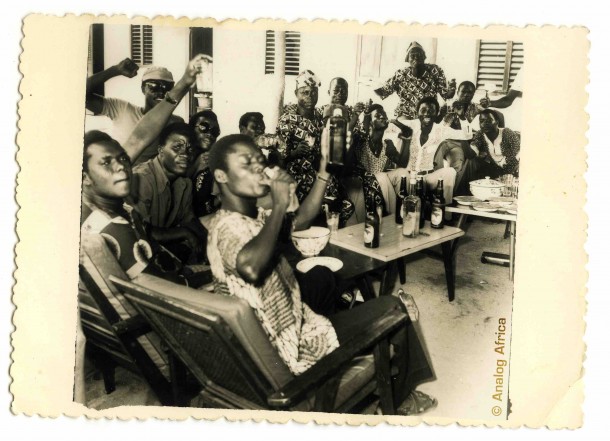
Orchestre Poly-Rythmo circa 1977… Idavi!
With the 80s comes political instability in various african countries; military coup, dictatorship in some places, mind-blowing corruption. All this has a direct influence and serious consequences on the musical scene. Two countries that I know well, Benin and Ghana, are prime examples of such a scenario. The Curfews that were implemented had paralized nightlife, often the only way for musicians to earn a living. Adding to that a shortage of prime material to manufacture vinyl and the whole music industry took a huge hit. Musicians had a hard time making hands meet and in the case of Ghana, many musicians left the country. With the lack of means to keep an orchestra afloat come Keyboards who make their big entry and start replacing drums, percussion and horns. The keyboards invasion was a planeterian phenomenon but while it might have worked well with the new wave sound coming out of the UK and Germany, it certainly didn’t work well with highlife. Some places like Cabo Verde though managed to make the best music during the 80s, where Keyboards were used in an intelligent way, not as a tool to replace other instruments but just to be what it is, a keyboard.
Are you still digging’, buying vinyl, visiting record shops?
I still arrange two to three “record safaris” per year just to look for music. Shops, very occasionally.
Why did you choose this name : Analog Africa? A kind of vision of Africa in seventies ?
The name for the label came to me while in Jo´burg working on my first compilation by a band called The Green Arrows from Zimbabwe. For that project I had Gallo, one of South Africa´s major labels, as a partner. Their archive manager at that time was Rob Allingham, an american who had arrived in South Africa in the 70s to work for the railways and who fell in love with south african music. He became such a connoisseur that Gallo hired him to structure their immense archive. I first contacted him to see if he could help me find the master tapes for the Green Arrows songs to which he replied that he needed the ABC numbers which is the reference of the matrices. «You will find that number on the vinyl record» he continued. I must have been under a lucky star because shortly after that email I manage to find a warehouse that contained most of the records released in Zimbabwe. With that «discovery» I suddenly had found all of the bands input and could send all the references numbers to Rob, who a week later send me a message to tell me that all the master tapes had been found. The word Analog was constantly popping up, and since I was dealing with african music mainly, the name Analog Africa surfaced naturally. At the time I was staying at the house of legendary South Africa musician Pops Mohamed who recommended I called the label “Africa Analog” but I thought the other way around had a nicer flow.
Could you describe the Green Arrows compilation?
The initial idea was to release Oliver Mutukudzi´s first LP called “Ndipeiwo Zano”, an album that is in fact a compilation of singles released between 1977 and 1978, a common practice at that time, especially under producer Zacks Nkosi. Oliver who I met for the first time in 1996 seems to be open to the idea, but then in 1998 under a new management Oliver recorded an album which catapulted him to stardom – “Tuku Music” probably the best sold album in Zimbabwe´music history. In 1999 I was ready to start working on my label and when I tried to license the album they made me understand that they might be waiting for a bigger fish.
At that time I was staying in a hotel in Avondale, two miles from downtown Harare. I was in my room and had thrown into my deck a tape of the album “Chipo Chiroorwa” by the mythical Green Arrows band. That album – considered the first Zimbabwean Long play – was release on the 2nd of february of 1974 – my birthday. Some things are no coincidence.
Fast forwarding I finally met Zexie Manatsa the band leader and the bass player of the Green Arrows a his home on February 6th 2002. We sat down, I explained what my plans and after a discussion that lasted about an hour, Zexie stood up and said «Ok Samy, go for it!» I met the legendary musicians half dozen of times in a time span of a year or two and together we created that first compilation. Zexie felt I had that project at heart and every time we met he would give me additional informations, and more pictures, so I ended up with a 24 pages liner notes. All that process did flow naturally, I did not plan to write a «book» it just happened. But I also strongly believe that you can like music, but to love it you´ll need that extra something and thats context. Music is not only sound, it has also an organic process, made my people who have struggled to arrive where they are. If you don’t understand what they have gone thru you have only half of the story.
What could be your editorial/esthetic line?
Just good music, no matter the quality of recording.Many of the african musicians showcased in our compilation are self taught and so they do come up with ways that can’t be learned at music school. This african « treasure trove » is impacting a whole new generation of western musicians and now many bands are playing in ways that I can only describe as «Poly-Rythmic».
So even if the quality of recording is not 100% due to the reality on the ground, it doesn’t take anything away from the quality of the musicianship and the creativity – everything is there to influence and give ideas to new generations of musicians. I tend to say that the music we and other labels have released in the last few years is «music from the past that will influence the future». Our compilation The Bariba Sound – Le Super Borgou de Parakou is without doubt some of the craziest stuff we’ve released and yet it is one of the releases that had a lesser impact, probably due to the sound quality. Thats really a shame because it is a goldmine or twisted rhythms, riffs, breaks, grooves.. you name it – stuff that will only be revealed to those who are just a little bit more patient.
At the beginning of the label, you were much devoted to the music of the Gold Coast … what attracted you?
The most appealing aspect of releasing music from Benin was that it was practically unknown in the northern hemisphere. The « surprise effect » is very important and I think showcasing music from a region people know little or nothing about is exciting. You are opening a new horizon, a new window thru which people can travel, its food for thoughts and imagination.
You worked on both sides of the black Atlantic: what are the aesthetic links between the two continents of music? what are the differences?
This is a difficult one. The intermingling of rhythms and beats that has occurred between these two continent is difficult to pin down and even specialist are still puzzled by its complexity. Brazil and Colombia are the two South American countries I´ve travelled to and I can give you my two cents. In the case of Brazil I can see strong parallels with Benin, they share common ground musically. It had developed not only due to the slave trades, but also thru the Agoudas, which are slaves that had bought their freedom and had returned to Benin bringing with them new musical flavours and spices. Thats the reason why you have family names such as De Souza and Rodrigues.
Some traditional Brazilian rhythms such as Tambor do Mina or Tambor Criolo are very close if not identical to the music you hear in Benin. There is also a strong connection between Brazil and Angola and some believe that the roots of Samba, the one sound that unifies all of Brazil, lays in the Angolan Semba, but I am not a historian. Due to its proximity to the Caribbean, the northern part of Brazil is heavily influenced by music of Cuba, Haiti, Suriname, Guyana, martinique, countries that in turn are heavily influenced by African music.
In Colombia the obvious example would be the palenque direct descendants of Bantous who are people originated from the central african region – very probably from the congos. Palenques still speak african tongues and play african rhythms rooted in bantou traditions. What is surprising with Colombia is the impact of «vintage» african music on the musical scene of the Caribbean coast. While in the african cities young people have no or very little interest in music from the past, young Colombian are just going crazy for that stuff.
In a region where Prince Nico Mbarga is a godlike figure, vintage african music is something you hear everywhere and all the time in the cities along the caribbean coast.
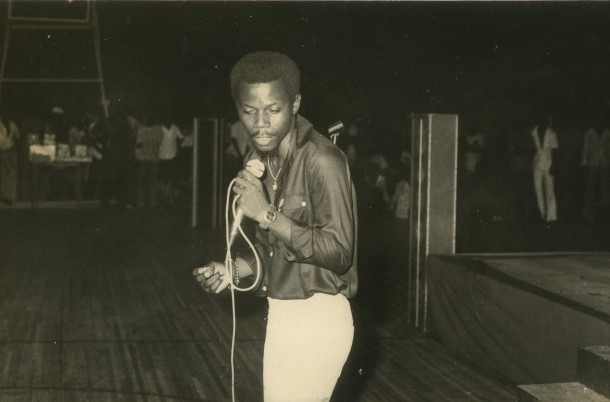
Vincent Ahehehinnou circa 1981… Best Woman!
There were francophone artists (Benin, Togo) and English (Ghana, Nigeria). Do you hear a difference between these two post-colonial parts of Africa?
In terms of traditional music I see more resemblance between Nigeria and Benin and Togo and Ghana, since they share borders where common people live. When it comes to the influence of their former colonies I want to say that the Francophone african countries have been more influenced by Cuban music, probably due to the similarity between spanish and french and its common latin root. But thinking about it I think that Nigeria and Ghana had also been influenced by cha cha cha, Mambo and Pachanga although, and that might the main difference, it was very rarely or never sang in spanish. There is a stronger similarity between cuban son and highlife then one would expect at first. In countries like Senegal and Benin cuban son was less diluted with traditional music although a senegalese band playing cuban music will very much add their own touch and in so doing reinventing the style. Who wants to hear a copy of what exists already? Not me! The same can be said about the «congolisation» of Cuban music or the Beninese take on Cuban music.
The reason why Cuban music was so influential back then, I was told, is because it was the first genre of music that had strong resemblance with their own traditional music and which bands we allowed to perform at ball rooms and festivities during colonial times. It spread like wild fire.
Can you tell us how you found and selected the brilliant Amara Touré LP you had released this year ?
Amara Touré has been a favourite of mine for a long time. He is one of these rare musicians that is loved by all the people collecting african music. I can say without doubt that I never heard someone saying that he didn’t like Amara Touré, which says a lot. Speaking about the influence of Cuban music in Africa, his version of ‘Lamento Cubano’ is one of these songs that I have been listening for many years and it still enjoy it immensely each time. I´m convinced that Its music created to last an eternity.
Amara had immortalised 4 records under his name – three 7inch singles and one Long Play. The three singles were recorded between 1973 and 1976 with his band Black and white in Cameroon. He then moved to Gabon in 1980 and recorded his only LP with Orchestre Massako which contained 4 songs. 10 songs in total and those are the tracks I compiled. I can’t recall where exactly I first bumped into Amara´s music since his record had travelled well, especially in Francophone countries, but my guess is that I might have found them in Cotonou.
What was the importance of the Poly Rythmo in the development of your label?
Hugely influential, as far as I am concerned the grooviest band to ever scrapped the surface of the earth. Who could have competed with these guys? Its is still unreal that less then 10 years ago that band was still totally obscure.
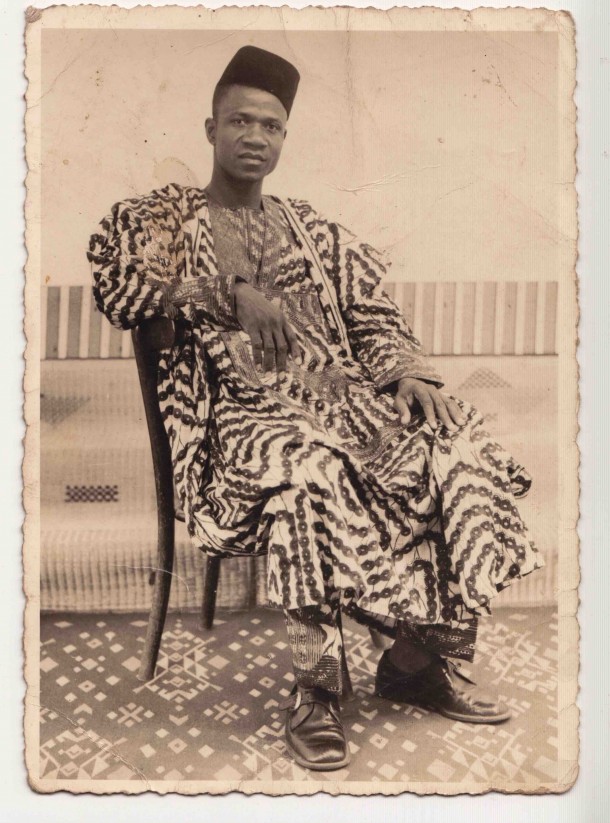
Ignace de Souza circa 1968… Asaw Fofor!
You’ve just released a selection dedicated to Cape Verde, funaná years, and you will drive out the Bitori, a legend for that music. How do you explain the current success of this music, when ten years ago nobody cared about it in Europe?
I think we have reached a point where people understand the diversity of rhythm and beat that come from the different corners of Africa.
Maybe due to the internet people have access to so much more information so you can’t just bait them with a term like “world music”. For them to “swallow the hook” you will need to be a little more creative than that. People are curious and hungry to learn about the various sounds and genres that exist and so every year or so there is a new trend; few years ago it was Cumbia, then Compa, now its Funaná, next year its gonna be Forró… and so on.
In the case of Funaná some people such as Paulo Goncalves, Alex Figueira, Alma Negra and Celeste/Mariposa have started promoting that style heavily by recording mixes that had a strong impact on listeners, me being one of them, or by organizing funaná parties or doing remixes. The internet, as much as it has erased the music industry as we knew it, has created other ways to promote and market music. These are wired but also exciting times.
You have published some records on the South American scene (Siria from Brazilian NotherEast, Ritmo del Diablo from Colombia…). Were these one shots, «coups de coeur», or do you expect to develop this further in the future?
In both cases it was a « coup de coeur » as you rightly said. Colombia is a country that gave me so much that I felt the strong urge to give something back and its the same in the case of Brazil. The music from the north and the north east of Brazil, heavily influenced by african music, has been marginalised by the music industry based in the south of the country. Brazilians themselves know very little if nothing about the music from that part of the country so imagine the rest of the world. This is something I am looking into at the moment. So coup de coeur at first yes but love at first sight can sometimes lead to a wedding!
Is it more difficult to work with Latin American producers/publishers?
In the case of Brazilian music it is more difficult if you want to do things the official way because a lot of the material is owned by majors record companies who in most cases do not license their music. My guess is that they just do not have the time to deal and negotiate with independent label like ours, its not financially interesting. I have tried to convince some of them that this music is culturally significant and I must admit that I could picture whoever was ready my message, smiling at my naive view.
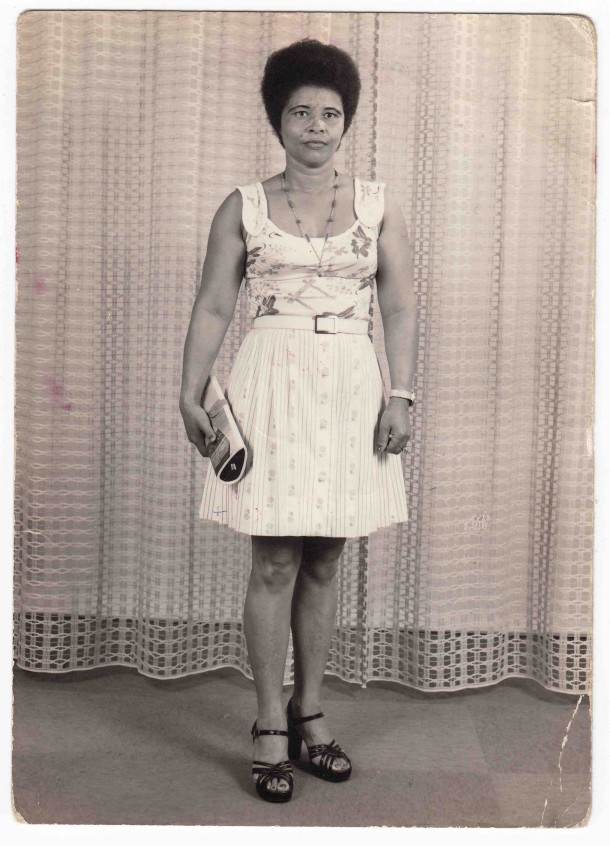
Voz de Sao Nicolau circa 1971… Nha Antonia Engracia!
On the other hand these majors often don’t really know what they have in their catalog and certainly no clue about the music we are interested in, so you might think « why awaken sleeping dogs »? And logically if they don’t have time to deal with you when you are offering to pay money for the music why would they´ll go after you for release a song by Messiah Hollanda which for them mean nothing in terms of financial might. So I have licensed a few Brazilian songs directly from the artist and I believe it is the fairest way but you are putting yourself in a delicate situation. In Colombia its easier since the few mighty labels are keen to work with us. They’ve also realised that the independent label have done an mammoth job in promoting Colombian music which has been very beneficial for their own business. The very rarely give exclusive licenses thought.
Is deejaying an important part of your business? And does it affect your research as a digger?
I like DJing because it allows me to travel and to discover places I wouldn’t have the chance to visit otherwise. It also a good way to test songs I am thinking of releasing.
You spend a lot of time searching for information on the ground. Is it the editorial quality that makes the difference between reissue labels? Is this the price to pay to keep existing in a crowded market ?
In the long run, the labels that will be remembered, the ones that will leave a legacy are probably the labels that make extended research about the material they release, maybe that just wishful thinking but I believe in that. It is a very time consuming process to release a proper compilation but on the other hand it is rewarding and an honor to have the chance to meet the musicians who created the music you love. And a sign of respect.
What could be the label’s leitmotif?
I don’t think I have one.
You have a stronger collection of Ethiopian music… How come you have not released anything yet?
I started working on an Ethiopian compilation around 2004. One of the first artists I met was Alemayehu Eshete who I went to see in Addis Ababa to showed him the list of the songs I was interested in. He was very positive and enthusiastic and even encouraging me to «take» more songs. Anyway, I ended up licensing and paying for 4 tracks only to see them being released, a month later, by Buda music on Ethiopiques No.28, if I recall properly. That was a setback since these 4 songs were the base for the compilation. What I like doing most is showcasing music from countries that didn’t have so much exposure and I think after more then 30 Ethiopiques there is no really a need for one more compilation… although I do have a few things up my sleeve but I´ll wait a bit, maybe for Analog Africa No.40!
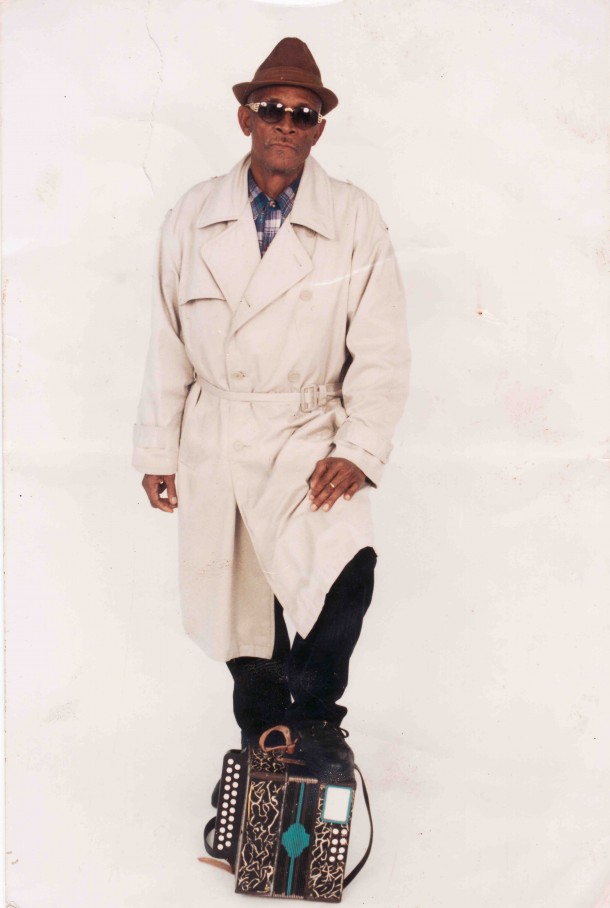
Bitori circa 1997… Nha Bibina!
Ten years after you started running this label, do you feel an evolution in the music market, in what they called world music?
What I have noticed in recent years is the way new african/tropical recordings are sounding, especially those produced by european labels. I have little doubts that they have been very much influenced by the kind of sound the independent reissues labels have been releasing in the last few years. Listening to recordings by bands like Jupiter, Vaudou Game, Bixiga 70, Soul Jazz Orchestra, Jungle by Night just to name a few, you sense that these guys have listened to a lot of Poly-rythmo and Mulatu stuff. Many of these projects have also being recorded in conditions similar to the way bands used to record decades ago with a lots of hypnosis going on, psyched up guitars, twisted keyboard sounds a la Poly-Rythmo, things that were not common 10 or 15 years ago. That the impact reissues labels have had I think. Artist like Ebo Taylor, Poly-Rythmo, Bitori, Mulatu Astatke, Pat Thomas, Anibal Velasquez, forgotten legends who have now started a new careers after being released by independent labels. These are the few things that have evolved since we have started 10 years ago.
Is it more complicated to put out compilations today?
No.
Nowadays, there are many reissue labels which follow this model, I mean more quality even if it means being more expensive…but at the same time, there is also another market for LP reissues, with majors and other labels coming back, preferring to sell cheaper. Is it the (re)creation of two opposite sides for releasing LPs ?
I don’t know. I don’t really have a response to this since I don’t have enough insight of what is going on in the market. I also have little time to check what others labels are doing but I do come across and buy music by labels like Sahel Sound, Sublimes Frequencies, Finders Keepers, Light in the Attics… I like what they are doing.
There are more and more reissues of old LPs, and more and more record labels (major or indie) now release their new artists on LP, or EP. Do you think that the LP reissue market could ever reach saturation point?
Time will tell. I am not sure. In the case of afrobeat for example that’s a style of music I rarely listen to these days. Once you´ve digested Fela´s catalog do you really need more afrobeat LPs from bands using Fela´s formula? So when it comes to Afrobeat, for me personally we have reached saturation. But what about someone that has just discovered that style? I think saturation can occur within a generation but once there is a new one the reset button is activated.
Have you received many negative answers on some of the LPs, artists, unreleased tapes, you were trying to reissue?
A few. Generally the response is positive. The music has been created to travel thru time and space and in most cases artist understand that his music will have a second chance, even if it is 30 or 40 years later – its never too late for good music. So generally I meet proud artists that welcome the idea with open arms. That also one of the reason why I would encourage everyone do avoid buying bootlegs, despite the strong temptation.
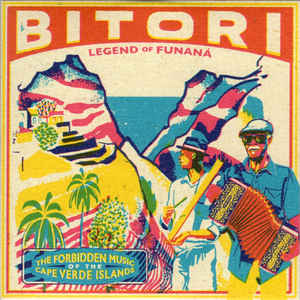
What is your next release ?
After the compilation “Space Echo” I´m releasing the music of Bitori a 78 years old accordionist and the last standing legend of a music style called Funaná. Funaná is the most african of all styles from Cabo Verde. It was a symbol of independence and african identity – it was also very hot and sensual, so the portuguese colonial rulers banned it. If they catched you performing Funaná you would be arrested, jailed and tortured. It was also never played on radio, they made sure that style was buried – it was slowly but surely disappearing, until independence in 1975.
The first musician to record a funaná song was Norberto Tavares in the late 70s but the band that really put that music on the map was Bulimundo. The accordion was replaced by keyboards and the ferrinho, a metal bar scrapped with a knife, was replace by the drum. The modern form of Funaná took the whole country by storm and people from Cabo Verde themselves were amazed of that style they had never heard about, that how well that genre was oppressed. The traditional form of Funaná though, as it is meant to be was only recorded much later. One of these recording was by Bitori who in 1997 set foot in the studio for the very first time and has recorded what many consider to be the best Funaná album of all times. So that’s the album we will be reissuing in July 22nd.
What is the LP you dream of reissuing?
Can’t tell….I am working on it!
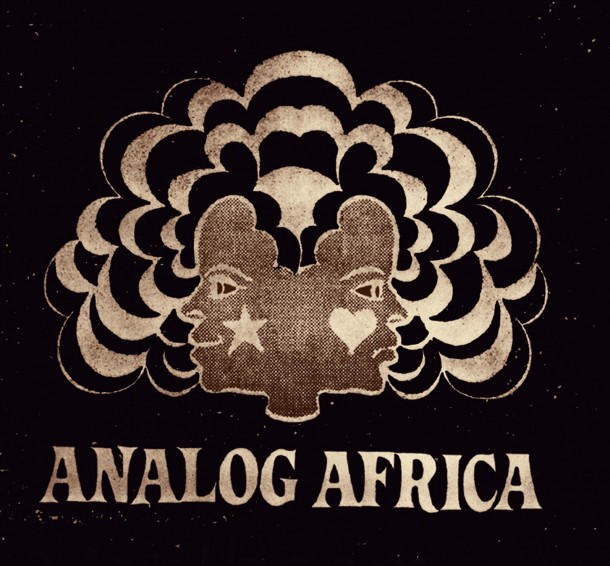
You wrote… I am thinking of Leopold Sedar Senghor in Senegal, Sekou Toure in Guinea, Kwame Nkrumah in Ghana, Jomo Kenyatta in Tanzania ???
Kenyata, as his name told, was president of Kenya, and don’t do anything who could be related with the others persons you named.
Perhaps you wanted to speak about Julius Kambarare Nyerere, first president of Tanganyika and Tanzania who do a lot for his country
Sincerely yours,
Pauly
Indeed, Mistake! I meant Pre. Nyerere! Thank you for correcting
Bravo pour ton travail Samy, merci de nous faire découvrir de telles pépites. Merci de m’ avoir fait découvrir le son du très grand Poly- Rythmo.
I Think Mauritius is very interesting,or Sao Tome ,Principe for a deep foray
The last STRUT compilation on Sega is very beautiful.
I Think that Island music is so interesting,wat about a search into
Zanzibars obcure twarab.
Or the real hornfull kaseko of mid 70`s Suriname.
Anyway i have lp your compi`s
I love them all and it made me an passionate
World music lover
Thanks!!!!!